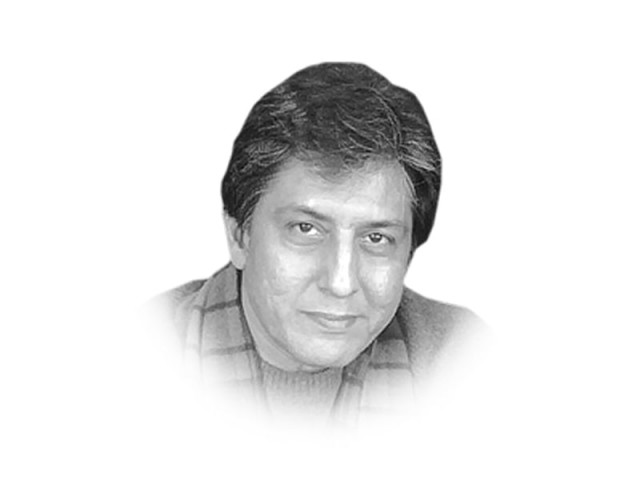JI’s playbook and civilian supremacy
The principal contradiction is about conflicting positions on the nature of state and the role of religion in it.

The writer is Editor, National Security Affairs at Capital TV and a visiting fellow at SDPI
This is by no means an exhaustive list. In fact, each of these questions has spawned a huge corpus of literature in political science and sociology. Consider just one issue.
Recently, after a drone strike took out Pakistani Taliban chief Hakimullah Mehsud, the Jamaat-e Islami Amir, Syed Munawwar Hassan, called Mehsud a martyr. The storm that followed pulled the military into the debate. The Inter-Services Public Relations directorate released a note expressing the military’s deep disappointment over Hassan’s statement.
Hassan and the JI, instead of recanting the statement after this rap on the knuckles, doubled down and said the military’s response amounts to political interference. Not only does the Jamaat stand by his statement, Hassan has also chosen to write a letter to Prime Minister (PM) Nawaz Sharif. The ball is now in the military’s court.
Let’s pull back a little and look at this from another perspective. A political party says something the military doesn’t like. The military reacts. The party turns around and tells the military to take a hike. Shear the exchange of its context and see whether we like it or not. For the longest of times, this country’s principal contradiction, to use Mao’s phrase, was the civil-military divide. The army could dictate terms, including of what narrative would dominate, and it could make that stick. Now we have a situation in which a political party can cock a snook at the army without much fear of reprisal.
That is a good development. The principal contradiction seems, for various reasons, to be resolving itself in favour of the civilians.
A deeper irony cannot be missed: the narrative Hassan is using to mock the army is the narrative the state created, developed and honed over many decades and thrust down the throat of this society.
Those of us who have always dreamed of the civil-military conflict resolving itself in favour of the civilians should thank Hassan for standing up to the military, even as the PM went to the Army General Headquarters to pay homage to fallen soldiers. In this formulation, Hassan stands for change, the PM for a status quo that is collapsing but has not collapsed yet.
Those holding an absolutist ideological position on civil-military relations would agree. There will also be time to gloat over the irony mentioned above: good, the army’s chestnuts are in fire now, serves them right.
But there is more than one problem with this absolutism.
The first relates to the JI’s perfidy. It rejects the state by throwing its stock with the leader of a franchise, or call it network, that rejected the state and waged war on it. When the military stands up for the state because the government is too lily-livered to stand up to the Jamaat, the latter turns around and informs us that it is not the military’s business to interfere in politics, a concept as modern as the state they reject for — you guessed it — being a modern nation-state.
Since we invoked Mao’s principal contradiction, let it be placed on record that the concept is not static. The nature of the principal contradiction changes according to the context. This is what Mao wrote in his August 1937 essay, “On Contradiction”:
“… in [a] capitalist society the two forces in contradiction, the proletariat and the bourgeoisie, form the principal contradiction. The other contradictions … are all determined or influenced by this principal contradiction.
“In a semi-colonial country such as China, the relationship between the principal contradiction and the non-principal contradictions presents a complicated picture.
“When imperialism launches a war of aggression against such a country, all its various classes … can temporarily unite in a national war against imperialism. At such a time, the contradiction between imperialism and the country concerned becomes the principal contradiction, while all the contradictions among the various classes within the country (including what was the principal contradiction, between the feudal system and the great masses of the people) are temporarily relegated to a secondary and subordinate position.”
The question is simple: do we want to take a dogmatic position on civil-military relations and allow Hassan to play his game in the name of the principal contradiction, or should we consider that at this point, the principal contradiction has temporarily shifted, that it is now between those who want to tear asunder the state and those who want to secure it against this assault?
Would it be useful to say that what is happening today is the expression of our follies of yesterday? On my television programme, many politicians, from different parties, take this position. Recently, the Pakistan Tehreek-e-Insaf has been most vociferous apropos of this line of reasoning.
The principal contradiction today is about conflicting positions on the nature of state and the role of religion in it. The immediate outcome is the question of how the state must operate in the current global architecture. Should we act the way al Qaeda and the Taliban want us to, by waging jihad against the world? Or should we, like China and others, stay within the system and develop our strengths?
Hassan and his ilk would want us to go for a frontal, ‘faith-based’ assault. The realist approach would recommend the latter course.
As for taking positions, despair thyself of simplistic absolutism.
Published in The Express Tribune, November 13th, 2013.
Like Opinion & Editorial on Facebook, follow @ETOpEd on Twitter to receive all updates on all our daily pieces.














COMMENTS
Comments are moderated and generally will be posted if they are on-topic and not abusive.
For more information, please see our Comments FAQ